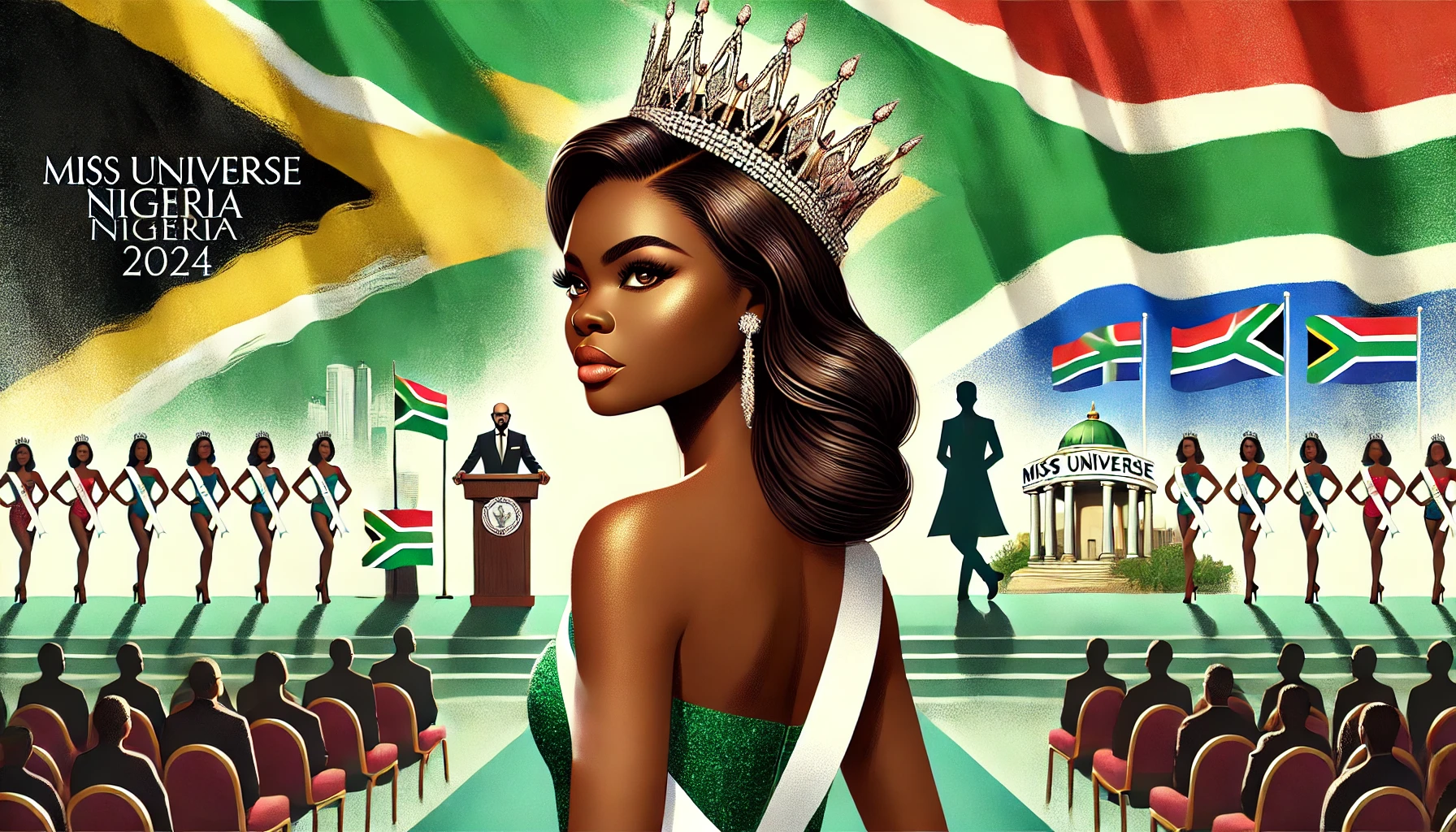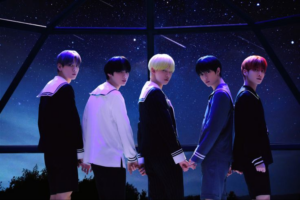Miss Universe Nigeria 2024: Chidimma Adetshina’s Journey to the Crown and What It Means for Nigerian Pageantry
The world of beauty pageants is often filled with glamour, excitement, and fierce competition. However, it can also be a stage for controversy, as seen in the recent Miss Universe Nigeria 2024 pageant. The crowning of Chidimma Adetshina, a South African-born beauty queen with Nigerian roots, has sparked significant debate and highlighted deeper issues within the industry. In this blog, we will explore Chidimma Adetshina’s journey to the crown, the controversies surrounding her victory, and what her win means for Nigerian pageantry on the global stage.
Chidimma Adetshina: A Tale of Perseverance and Triumph
Chidimma Adetshina’s journey to becoming Miss Universe Nigeria 2024 is a story of resilience and determination. Born to a Nigerian father and a Mozambican mother in South Africa, Chidimma grew up in a multicultural environment. Her mixed heritage, however, became the focal point of controversy when she decided to participate in beauty pageants.
Initially, Chidimma was a finalist in the Miss South Africa 2024 pageant, but her participation was marred by disputes over her eligibility. Critics questioned whether she should be allowed to compete given her Nigerian roots, leading to widespread debates and even xenophobic attacks. This ultimately forced Chidimma to withdraw from the competition, citing concerns for her family’s safety(AOL.com,The Standard).
Despite the setback, Chidimma’s dream of representing her heritage on an international stage did not end there. The organizers of Miss Universe Nigeria extended an invitation to her, recognizing her strength and resilience. They believed she would be an outstanding representative of Nigeria at the Miss Universe competition. Accepting the invitation, Chidimma went on to win the Miss Universe Nigeria 2024 crown, marking a significant victory not just for herself, but for Nigerian beauty pageants as a whole.
The Impact of the South African Beauty Queen Controversy
Chidimma Adetshina’s story is not just one of personal triumph; it also brings to light the broader issues within the beauty pageant industry, particularly concerning nationality and eligibility. The South African beauty queen controversy that surrounded Chidimma highlighted the complexities of identity in an increasingly globalized world. With her Nigerian roots, South African upbringing, and Mozambican ancestry, Chidimma embodies the multicultural reality that many individuals face today.
The Miss South Africa nationality row revealed deep-seated tensions regarding what it means to represent a nation in a global competition. Critics argued that Chidimma’s participation in Miss South Africa was inauthentic because she had not lived in the country for many years. However, supporters saw her as a symbol of diversity and inclusivity. This controversy is not unique to South Africa; it reflects similar debates in other beauty pageants around the world, where contestants’ eligibility is often questioned based on their cultural or national backgrounds(AOL.com,BellaNaija).
These controversies raise important questions: Should beauty pageants be more inclusive of contestants with diverse backgrounds? How should eligibility be defined in an era where identities are increasingly fluid? The debate surrounding Chidimma’s participation in Miss South Africa and her subsequent win in Miss Universe Nigeria may push the industry to re-evaluate these criteria.
The Role of Xenophobia in Beauty Pageants
The backlash that Chidimma faced during her participation in Miss South Africa also highlights the issue of xenophobia in beauty pageants. Xenophobia, or the fear and hatred of strangers or foreigners, is not uncommon in competitive environments like beauty pageants, where national pride and identity are often at stake. In Chidimma’s case, her Nigerian roots became a target for those who felt she did not belong in the South African competition(The Standard).
This situation is not isolated. Similar instances of xenophobia have occurred in other pageants, where contestants from diverse backgrounds have faced discrimination or exclusion. These incidents underscore the need for the beauty pageant industry to address issues of inclusion and ensure that all contestants, regardless of their background, are treated fairly.
In response to these challenges, some pageants have begun to adopt more inclusive policies. However, there is still much work to be done. The experience of Chidimma Adetshina serves as a reminder of the importance of promoting diversity and combating xenophobia in beauty contests. It also highlights the need for organizers to support contestants who may be vulnerable to such attacks.
What Chidimma Adetshina’s Win Means for Nigerian Beauty Pageantry
Chidimma’s victory in Miss Universe Nigeria 2024 is a significant milestone for Nigerian beauty pageantry. Her win not only represents a personal triumph but also signals a broader shift in how Nigerian pageants are perceived on the global stage. By embracing a contestant with such a diverse background, the Miss Universe Nigeria organization has demonstrated its commitment to inclusivity and representation.
For Nigerian beauty pageants, Chidimma’s win is an opportunity to showcase the nation’s cultural richness and diversity. It also provides a platform for addressing important social issues, such as xenophobia and the complexities of national identity. As Chidimma prepares to represent Nigeria at the Miss Universe competition, she carries with her the hopes and aspirations of a nation that is proud of its heritage and committed to embracing the future.
Her journey also sets a precedent for future contestants, encouraging them to embrace their identities fully, regardless of their backgrounds. It sends a powerful message that beauty pageants can be a space for celebrating diversity and breaking down barriers.
The Future of Beauty Pageants: Embracing Diversity and Inclusivity
Chidimma Adetshina’s story is a microcosm of the larger trends shaping the future of beauty pageants. As the industry continues to evolve, there is a growing recognition of the need to embrace diversity and inclusivity. This shift is evident in the increasing number of pageants that are revising their eligibility criteria to be more inclusive of contestants with diverse backgrounds.
However, the industry still faces significant challenges. Issues like beauty pageant scandals and controversies over nationality and eligibility continue to undermine the credibility of these competitions. To move forward, pageant organizers must prioritize transparency, fairness, and the well-being of their contestants.
One way to achieve this is by establishing clearer guidelines for eligibility that reflect the realities of today’s multicultural world. Additionally, organizers should provide support for contestants who may face discrimination or xenophobia, ensuring that they have the resources they need to succeed.
A New Era for Nigerian Pageantry and Beyond
Chidimma Adetshina’s win as Miss Universe Nigeria 2024 marks the beginning of a new era for Nigerian pageantry. Her journey from a South African beauty queen controversy to becoming a symbol of resilience and triumph in Nigeria is a testament to her strength and determination. It also highlights the need for the beauty pageant industry to embrace diversity, combat xenophobia, and support contestants from all backgrounds.
As Chidimma prepares to represent Nigeria on the global stage, she does so not just as a beauty queen, but as a beacon of hope and a symbol of change. Her story reminds us that beauty is not defined by nationality or background, but by the courage to stand up in the face of adversity and the determination to achieve one’s dreams.
For more insights into cultural diversity and its impact on global events, visit Regent Studies for comprehensive resources and analysis.
For further reading on the complexities of nationality in beauty pageants, check out this article from BellaNaija.




